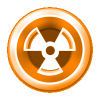Rotatesprite
rotatesprite <x> <y> <zoom> <ang> <tilenum> <shade> <pal> <orientation> <x1> <y1> <x2> <y2>
rotatespritea <x> <y> <zoom> <ang> <tilenum> <shade> <pal> <orientation> <alpha> <x1> <y1> <x2> <y2>
rotatesprite displays tiles onscreen. This command is only allowed during certain events.
<x> X coordinate, normally ranged 0-320
<y> Y coordinate, normally ranged 0-200
<zoom> is normally 65536. (ex: 131072 is zoomed in 2X and 32768 is half-sized)
<ang> is the angle, normally 0, where 360 degrees corresponds to 2048 Build units
<tilenum> is the tile number.
<shade> is 0 normally but can be any standard shade up to 31 or 63.
<pal> can be from 0-255.
<orientation> a bitfield describing translucency, masking, etc...
<alpha> translucence, 0-255
<x1>, <y1>, <x2>, and <y2> are boundaries on the screen that define where the tile may be drawn. If you want to draw a menu, use orientation bit 8, and the boundaries 0 0 xdim-1 ydim-1 as shown in example #2. If you want to draw a weapon, do not use bit 8 and use boundaries windowx1 windowy1 windowx2 windowy2, as shown in example #1. The difference is that xdim and ydim stay constant, while the other four shrink depending on the player's screen size.
setvar x 164 setvar y 176 setvar z 65536 setvar ang 0 setvar tilenum RPGGUN setvar shade 0 setvar pal 0 setvar orientation 0 rotatesprite x y z ang tilenum shade pal orientation windowx1 windowy1 windowx2 windowy2
This example displays the loading screen with 90% translucence as a kind of "Please Wait" sign:
setvarvar xdimminus xdim subvar xdimminus 1 setvarvar ydimminus ydim subvar ydimminus 1 rotatespritea 160 100 65536 0 LOADSCREEN 0 0 8 230 0 0 xdimminus ydimminus
Note: This command is similar to the deprecated myospal and myospalx commands, but with much more control.
